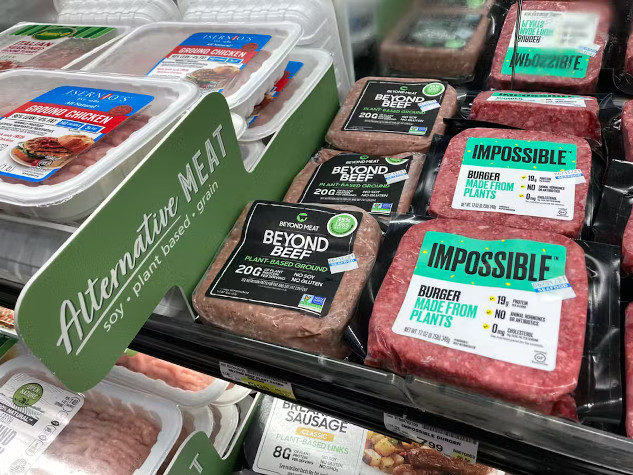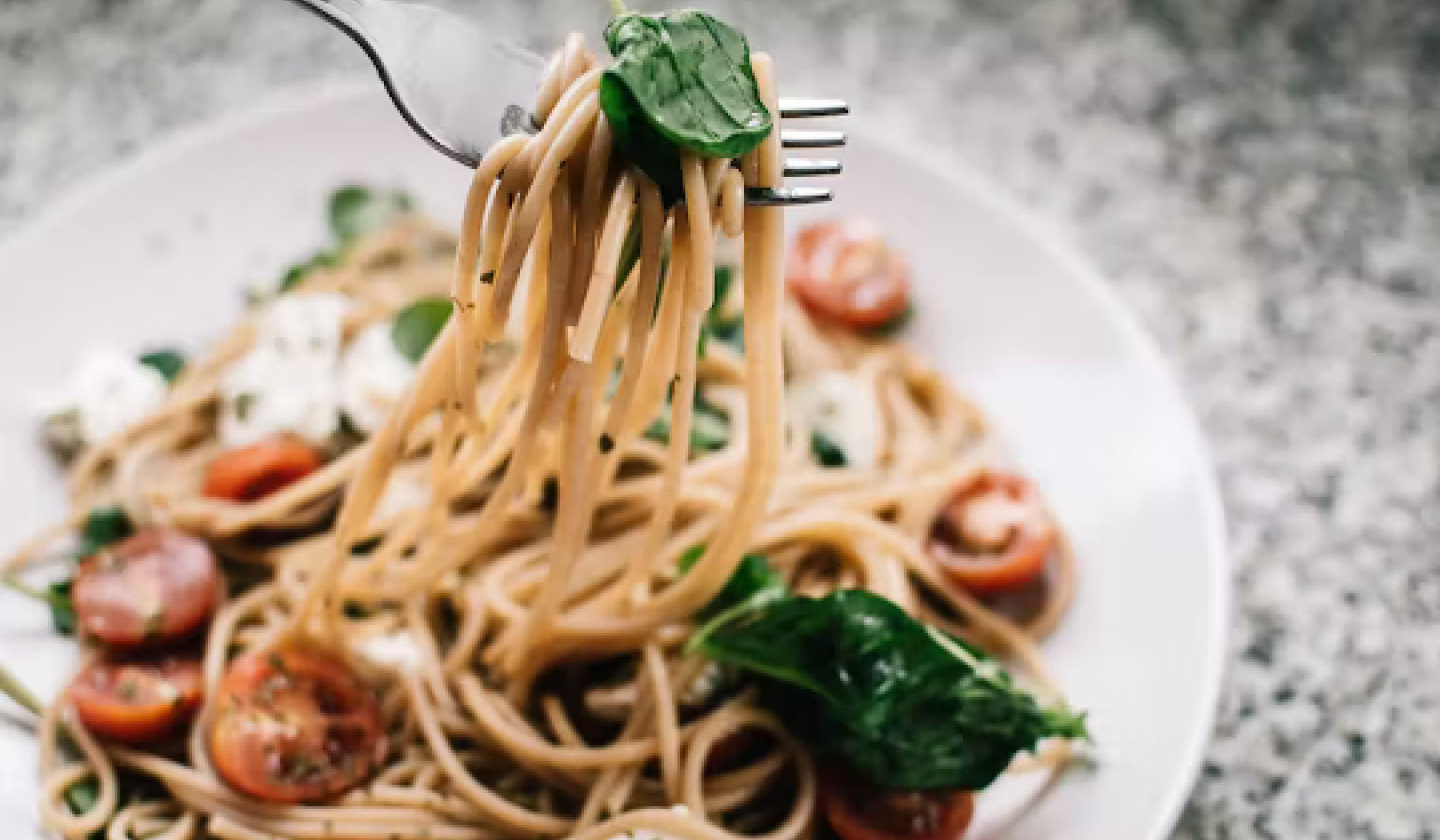
Looking for plant-based meat? Check the label for the sodium content. Michael Vi/Shutterstock
If you’re thinking about buying plant-based foods, a trip to the supermarket can leave you bewildered.
There are plant-based burgers, sausages and mince. The fridges are loaded with non-dairy milk, cheese and yoghurt. Then there are the tins of beans and packets of tofu.
But how much is actually healthy?
Our nutritional audit of more than 700 plant-based foods for sale in Australian supermarkets has just been published. We found some products are so high in salt or saturated fat, we’d struggle to call them “healthy”.
We took (several) trips to the supermarket
In 2022, we visited two of each of four major supermarket retailers across Melbourne to collect information on the available range of plant-based alternatives to meat and dairy products.
We took pictures of the products and their nutrition labels.
We then analysed the nutrition information on the packaging of more than 700 of these products. This included 236 meat substitutes, 169 legumes and pulses, 50 baked beans, 157 dairy milk substitutes, 52 cheese substitutes and 40 non-dairy yoghurts.
Plant-based meats were surprisingly salty
We found a wide range of plant-based meats for sale. So, it’s not surprising we found large variations in their nutrition content.
Sodium, found in added salt and which contributes to high blood pressure, was our greatest concern.
The sodium content varied from 1 milligram per 100 grams in products such as tofu, to 2,000mg per 100g in items such as plant-based mince products.
This means we could eat our entire daily recommended sodium intake in just one bowl of plant-based mince.
An audit of 66 plant-based meat products in Australian supermarkets conducted in 2014 found sodium ranged from 316mg in legume-based products to 640mg in tofu products, per 100g. In a 2019 audit of 137 products, the range was up to 1,200mg per 100g.
In other words, the results of our audit seems to show a consistent trend of plant-based meats getting saltier.
What about plant-based milks?
Some 70% of the plant-based milks we audited were fortified with calcium, a nutrient important for bone health.
This is good news as a 2019-2020 audit of 115 plant-based milks from Melbourne and Sydney found only 43% of plant-based milks were fortified with calcium.
Of the fortified milks in our audit, almost three-quarters (73%) contained the recommended amount of calcium – at least 100mg per 100mL.
We also looked at the saturated fat content of plant-based milks.
Coconut-based milks had on average up to six times higher saturated fat content than almond, oat or soy milks.
Previous audits also found coconut-based milks were much higher in saturated fat than all other categories of milks.
A first look at cheese and yoghurt alternatives
Our audit is the first study to identify the range of cheese and yoghurt alternatives available in Australian supermarkets.
Calcium was only labelled on a third of plant-based yoghurts, and only 20% of supermarket options met the recommended 100mg of calcium per 100g.
For plant-based cheeses, most (92%) were not fortified with calcium. Their sodium content varied from 390mg to 1,400mg per 100g, and saturated fat ranged from 0g to 28g per 100g.
So, what should we consider when shopping?
As a general principle, try to choose whole plant foods, such as unprocessed legumes, beans or tofu. These foods are packed with vitamins and minerals. They’re also high in dietary fibre, which is good for your gut health and keeps you fuller for longer.
If opting for a processed plant-based food, here are five tips for choosing a healthier option.
1. Watch the sodium
Plant-based meat alternatives can be high in sodium, so look for products that have around 150-250mg sodium per 100g.
2. Pick canned beans and legumes
Canned chickpeas, lentils and beans can be healthy and low-cost additions to many meals. Where you can, choose canned varieties with no added salt, especially when buying baked beans.
3. Add herbs and spices to your tofu
Tofu can be a great alternative to meat. Check the label and pick the option with the highest calcium content. We found flavoured tofu was higher in salt and sugar content than minimally processed tofu. So it’s best to pick an unflavoured option and add your own flavours with spices and herbs.
4. Check the calcium
When choosing a non-dairy alternative to milk, such as those made from soy, oat, or rice, check it is fortified with calcium. A good alternative to traditional dairy will have at least 100mg of calcium per 100g.
5. Watch for saturated fat
If looking for a lower saturated fat option, almond, soy, rice and oat varieties of milk and yoghurt alternatives have much lower saturated fat content than coconut options. Pick those with less than 3g per 100g.![]()
Laura Marchese, PhD Student at the Institute for Physical Activity and Nutrition, Deakin University and Katherine Livingstone, NHMRC Emerging Leadership Fellow and Senior Research Fellow at the Institute for Physical Activity and Nutrition, Deakin University
This article is republished from The Conversation under a Creative Commons license. Read the original article.
Nutrition books on from Amazon's Best Sellers list
"The Blue Zones Kitchen: 100 Recipes to Live to 100"
by Dan Buettner
In this book, author Dan Buettner shares recipes from the world's "Blue Zones," regions where people live the longest and healthiest lives. The recipes are based on whole, unprocessed foods and emphasize vegetables, legumes, and whole grains. The book also includes tips for following a plant-based diet and living a healthy lifestyle.
Click for more info or to order
"Medical Medium Cleanse to Heal: Healing Plans for Sufferers of Anxiety, Depression, Acne, Eczema, Lyme, Gut Problems, Brain Fog, Weight Issues, Migraines, Bloating, Vertigo, Psoriasis, Cys"
by Anthony William
In this book, author Anthony William offers a comprehensive guide to cleansing and healing the body through nutrition. He provides evidence-based recommendations for foods to include and avoid, as well as meal plans and recipes to support the cleanse. The book also includes information on how to address specific health concerns through nutrition.
Click for more info or to order
"The Forks Over Knives Plan: How to Transition to the Life-Saving, Whole-Food, Plant-Based Diet"
by Alona Pulde and Matthew Lederman
In this book, authors Alona Pulde and Matthew Lederman offer a step-by-step guide to transitioning to a whole-food, plant-based diet. They provide evidence-based recommendations for nutrition, along with practical advice for shopping, meal planning, and preparation. The book also includes recipes and meal plans to support the transition.
Click for more info or to order
"The Plant Paradox: The Hidden Dangers in 'Healthy' Foods That Cause Disease and Weight Gain"
by Dr. Steven R. Gundry
In this book, Dr. Steven R. Gundry provides a controversial perspective on nutrition, arguing that many so-called "healthy" foods can actually be harmful to the body. He provides evidence-based recommendations for optimizing nutrition and avoiding these hidden dangers. The book also includes recipes and meal plans to help readers implement the Plant Paradox program.
Click for more info or to order
"The Whole30: The 30-Day Guide to Total Health and Food Freedom"
by Melissa Hartwig Urban and Dallas Hartwig
In this book, authors Melissa Hartwig Urban and Dallas Hartwig offer a comprehensive guide to the Whole30 program, a 30-day nutrition plan designed to promote health and wellness. The book provides information on the science behind the program, as well as practical advice for shopping, meal planning, and preparation. The book also includes recipes and meal plans to support the program.

























